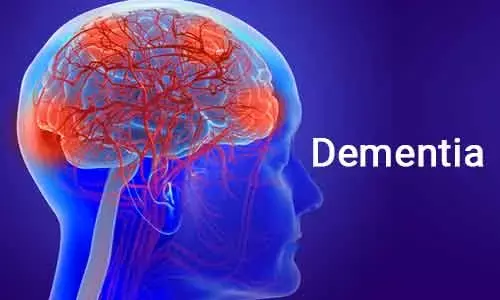- Home
- Medical news & Guidelines
- Anesthesiology
- Cardiology and CTVS
- Critical Care
- Dentistry
- Dermatology
- Diabetes and Endocrinology
- ENT
- Gastroenterology
- Medicine
- Nephrology
- Neurology
- Obstretics-Gynaecology
- Oncology
- Ophthalmology
- Orthopaedics
- Pediatrics-Neonatology
- Psychiatry
- Pulmonology
- Radiology
- Surgery
- Urology
- Laboratory Medicine
- Diet
- Nursing
- Paramedical
- Physiotherapy
- Health news
- Fact Check
- Bone Health Fact Check
- Brain Health Fact Check
- Cancer Related Fact Check
- Child Care Fact Check
- Dental and oral health fact check
- Diabetes and metabolic health fact check
- Diet and Nutrition Fact Check
- Eye and ENT Care Fact Check
- Fitness fact check
- Gut health fact check
- Heart health fact check
- Kidney health fact check
- Medical education fact check
- Men's health fact check
- Respiratory fact check
- Skin and hair care fact check
- Vaccine and Immunization fact check
- Women's health fact check
- AYUSH
- State News
- Andaman and Nicobar Islands
- Andhra Pradesh
- Arunachal Pradesh
- Assam
- Bihar
- Chandigarh
- Chattisgarh
- Dadra and Nagar Haveli
- Daman and Diu
- Delhi
- Goa
- Gujarat
- Haryana
- Himachal Pradesh
- Jammu & Kashmir
- Jharkhand
- Karnataka
- Kerala
- Ladakh
- Lakshadweep
- Madhya Pradesh
- Maharashtra
- Manipur
- Meghalaya
- Mizoram
- Nagaland
- Odisha
- Puducherry
- Punjab
- Rajasthan
- Sikkim
- Tamil Nadu
- Telangana
- Tripura
- Uttar Pradesh
- Uttrakhand
- West Bengal
- Medical Education
- Industry
Gout tied to lower risk of dementia in older adults, finds study

Korea: Results from a nationwide elderly cohort study showed a link between gout and dementia. According to the study, gout patients were at a 37% lower risk of developing dementia regardless of dementia type.
Findings of the study, published in The American Journal of Geriatric Psychiatry, support the beneficial effects of gout and hyperuricemia on neuroprotection.
There is inconsistent data on the association between gout and dementia. Kyung Eun Lee, College of Pharmacy, Chungbuk National University, Cheongju-si, Republic of Korea, and colleagues, therefore, conducted the study with an objective to examine if gout is associated with dementia risk in the elderly in a retrospective cohort study.
The study used population-based representative claims data from the National Health Insurance Service in Korea. Elderly Cohort database was used that represents 10% of the elderly Koreans over the age of 60, from 2002 to 2013. The association of gout was assessed with a new diagnosis of dementia. The data was adjusted for potential covriates such as demographics (age, sex) and comorbidities.
Based on the study, the researchers found the following:
· 22,178 patients with gout and 113,590 without gout were included. In each group, 2,557 (11.53%) and 18,264 (16.08%) patients, respectively, had dementia.
· In multivariable analyses, gout was independently associated with a significantly lower hazard ratio of incident dementia, with an adjusted hazard ratio of 0.63.
· A sub-group analysis conducted to find out the effects of gout medication showed that febuxostat use significantly decreased incident dementia.
To conclude, gout was independently associated with a 37% lower risk of dementia in the older adults.
"Our findings provide the population-based evidence for the potential protective effect of gout on the dementia risk and support the neuroprotective role of uric acid," the researchers wrote.
Reference:
The study titled, "Association Between Gout and Dementia in the Elderly: A Nationwide Population-Based Cohort Study," was published in The American Journal of Geriatric Psychiatry.
Dr Kamal Kant Kohli-MBBS, DTCD- a chest specialist with more than 30 years of practice and a flair for writing clinical articles, Dr Kamal Kant Kohli joined Medical Dialogues as a Chief Editor of Medical News. Besides writing articles, as an editor, he proofreads and verifies all the medical content published on Medical Dialogues including those coming from journals, studies,medical conferences,guidelines etc. Email: drkohli@medicaldialogues.in. Contact no. 011-43720751


